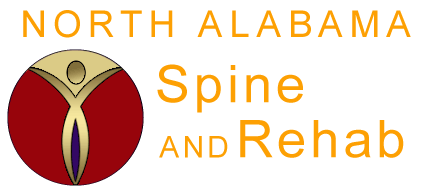Services
What If My Collision Injuries Don’t Show Up Right Away?
Vehicle collision injuries can be late-appearing. Here’s how to protect your health and your legal rights.
 Almost any motor vehicle crash is a traumatic event. From catastrophic collisions to fender-benders, there is a lot of force involved when a vehicle hits (or is hit by) something. Often, when people are in a car crash that seems minor, they do not notice any injury symptoms right away. This happens for a variety of reasons. In this article, we’ll help you understand the importance of monitoring your injuries following a car collision – for your physical well-being and to protect your legal rights.
Almost any motor vehicle crash is a traumatic event. From catastrophic collisions to fender-benders, there is a lot of force involved when a vehicle hits (or is hit by) something. Often, when people are in a car crash that seems minor, they do not notice any injury symptoms right away. This happens for a variety of reasons. In this article, we’ll help you understand the importance of monitoring your injuries following a car collision – for your physical well-being and to protect your legal rights.
Car Collisions are Exciting
Not “exciting” in the fun sense, more from a physiological perspective.
Sometimes athletes get injured during a game, and they continue to play without noticing the injury until the game is over. That is because their bodies are generating adrenaline and endorphins. These two chemicals operate to super-charge our bodies and even block pain.
Most car crashes will create a similarly heightened level of excitement. Your body will generate adrenaline and endorphins, which means you feel increased energy and (possibly) a lack of pain. Just because you feel fine immediately following a car crash, that doesn’t necessarily mean that you are fine. Once the release of those chemicals subsides, the pain from any car crash injuries could start to set in.
Soft Tissue Injuries After a Car Crash
A soft tissue injury refers to damage done to parts of the body other than bone. Muscles, tendons, and ligaments are considered “soft tissue.”
Car crashes, even low-speed ones, generate a lot of force. Drivers and passengers often come to a sudden stop right along with the vehicle in a car accidents; or they may get thrown around the passenger area. This places a lot of stress on joints and other vulnerable areas of the body.
WhiplashPerhaps the most common — if not the most recognized — type of soft-tissue injury is “whiplash.” This refers to an injury to the neck muscles when the head is suddenly, and forcefully, thrown forward and then back.
Soft tissue injuries typically result in pain, swelling, and reduced mobility, but these symptoms may not show up immediately. They can take days, even weeks, to manifest. In addition, soft tissue injuries are not visible on an X-ray. This makes them more challenging to diagnose and document. Getting proper medical treatment is the key first step, at or even before the first sign of pain or discomfort (more on this below).
Concussions After a Car Crash

Your brain is well-protected by your skull and the fluid inside of it. However, if you strike your head, or your body is violently jolted, your brain may strike the inside of your skull with great force. If this happens during the course of a car accident, you may sustain a concussion.
Concussions can be very serious, and the symptoms do not often show up immediately. Sometimes the symptoms are obvious (such as disorientation or even loss of consciousness), but they can also be more subtle. Here is a list of concussion symptoms:
- clouded thinking
- inability to concentrate
- difficulty remembering new information
- headache
- blurry vision
- nausea
- dizziness
- lack of energy, and
- abnormal sleep patterns (sleeping more than usual or less than usual)
If you exhibit any of these signs following a car collision, you may have a concussion; and you should seek medical attention.
See a Doctor After a Car Crash
Following a car crash, you should see a doctor if you feel any level of pain and discomfort. It may even be a good idea to get checked out even if you feel fine. Your doctor will be in the best position to determine whether you sustained any serious injuries in the accident. Your doctor can also give you advice on monitoring symptoms of potential injuries.
If you end up making any sort of injury claim after the collision, it’s crucial to be able to document the fact that you sought medical treatment within a reasonable amount of time. If you wait too long to see a doctor, an insurance adjuster may argue the severity of an injury that went untreated for a prolonged time.
First Steps Following An Auto Collision
Being involved in a car crash can be scary, but it’s important to keep calm. Your first steps following a car collision can impact the claims process dramatically. Continue reading below to find out the best ways to deal with a car collision that results in bodily injury.
Seek Medical Attention
See a doctor immediately. Although you may feel fine now or think your injuries aren’t very serious, symptoms such as the following can appear days after the accident:
- Pain
- Discomfort
- Dizziness
- Numbness
If you wait several days or weeks after the collision to seek medical attention, please record what things you did to minimize the discomfort like apply ice, take aspirin, or soak in a hot tub.
Take Detailed Notes and Photos
Take detailed notes on your injuries, medical treatment, and also be prepared to give detailed information about your past medical history to help you get the proper care you are entitled to receive from the at-fault party. It is important to write down the names and addresses of any of the following that you visit:
- Doctors
- Chiropractors
- Physical therapists
- Other professionals you were referred to after the accident
Keep receipts for medications you were prescribed or any assistive devices such as crutches that were needed.
Also keep the following records:
– A journal or daily diary about your injuries and medical care.
- Be specific about everything, and include such details as the degree of pain and any inconveniences you experience from your injuries.
– File every form of correspondence you had with medical professionals during the course of treatment for your injuries.
- This includes e-mails and notes that you record during and after telephone calls and doctor’s appointments.
– Save all of your medical bills and receipts.
- This includes prescriptions, special equipment (crutches, walkers, canes), special foods, and co-payments.
– Keep track of travel expenses for medical appointments.
Evidence is very important, record the following:
– Information about the collision.
- Snap pictures of the collision location, making sure to include stop signs and traffic lights, if applicable.
– Photos of your car’s damage.
- Don’t limit it to one or two shots. Take several pictures from every angle, making sure to snap close-ups and long distance shots.
– Proof of financial losses, such as lost wages and opportunities.
– Names and contact information of witnesses.
Photos of Your Injuries
Ask a friend to take pictures of your injuries.
If you have trouble negotiating a claim against the insurance company or you decide to hire a personal injury attorney, photos will be valuable evidence for your case.
What NOT to Do
Avoid Other Missteps
- Complete all of your chiropractic/medical treatment and wait til all of your injuries have stabilized. This process may take more time than you anticipated. Otherwise, you don’t know the total or future cost of your injuries.
- Don’t sign release forms or checks with releases on them before until you understand what you are signing and how it will impact you. You may need to seek advice from a professional.
- Signing such forms can release your car insurance company from the responsibility of paying on additional claims.
- Don’t talk to people about the case unless you need to.
- Don’t cave in to pressure not to file a police report.



